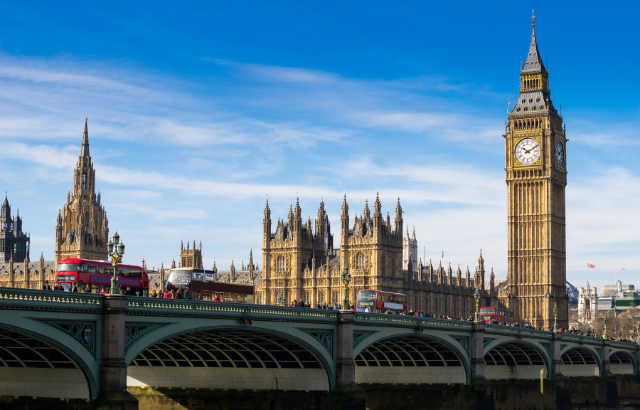Sadiq Khan on course for Mayoral election victory according to latest poll from Queen Mary’s Mile End Institute
Sadiq Khan remains on course for a comfortable victory in this year's London Mayoral election, according to the latest poll from the Mile End Institute at Queen Mary University of London.

The poll puts Labour's Sadiq Khan on 49 per cent in the first round of voting for the Mayor, up by four percentage points on the last poll in November, and only just missing out on winning the contest in the first round of voting.
Once second preferences are taken into account, Khan wins the second round by 67 per cent against Shaun Bailey for the Conservatives on 33 per cent.
A two horse race
Bailey has at least maintained his position in second place on 24 per cent of first preferences (up one per cent from November). The independent candidate, and former Conservative, Rory Stewart, remains firmly in third place (13 per cent, no change).
In fourth comes Siân Berry (7 per cent, no change), with Siobhan Benita for the Liberal Democrats fifth, on just 4 per cent (down 4 per cent from November).
Professor Philip Cowley, Professor of Politics at Queen Mary University of London said: “There must now be a real risk that Siobhan Benita will poll the same or worse as a representative of a major political party as she did when she stood as an independent candidate in 2012.”
Khan’s wider appeal
The figures also reveal that Sadiq Khan appeals to voters outside of the Labour Party. Professor Cowley added: “Khan manages to attract 84 per cent of those who would support Labour in a general election but also almost half of Westminster Liberal Democrat voters (47 per cent), whereas Bailey attracts the support of 76 per cent of Conservative Westminster voters and almost no support from elsewhere.”
The poll results also show that Rory Stewart attracts support from 19 per cent of Liberal Democrat voters and 15 per cent of Conservative voters, but struggles with the (much larger) group of Labour voters, from whom he gets just 6 per cent.
Khan leads among almost all demographic groups, ahead amongst men and women (although more so amongst women), white and BME (more so amongst BME), inner and outer London (more so in inner London) and middle (ABC1) and working (C2DE) class Londoners (although more so amongst the middle class). He also enjoys leads amongst Londoners of all ages, up to the age of 65. His lead amongst those aged 18-24 is a staggering 66 percentage points. Of those over the age of 65, Khan and Bailey share the lead.
Khan victorious in head to head scenarios
The incumbent Mayor's comfortable victory was confirmed in a series of questions asking explicitly about the head to head contests, with Khan emerging victorious in each scenario. The closest was against Stewart, but even here the result was clear, with Khan preferred by 39 per cent to Stewart's 27.
The poll also asked respondents who they thought would be in the final two. This is important, as the electoral system requires voters to choose a second placed candidate without being sure who will still be in the race at that stage. Respondents could choose two people. There were sizeable numbers of ‘Don’t Knows’, but of those who were chosen, 47 per cent of people thought that Sadiq Khan would be in the run off, followed by Shaun Bailey (23 per cent) and Rory Stewart (18 per cent).
Professor Cowley added: “In November's poll, Stewart narrowly edged Bailey in the responses to this question; the fact that he no longer does so is yet further evidence of his campaign failing to take off.”
Respondents were also asked which issues would be important in determining how Londoners voted in the Mayoral election. Respondents were allowed to tick up to three options. Health care – where the Mayor's influence is limited – tops the list with 40 per cent. The was followed by knife crime in second with 32 per cent and housing in third (30 per cent), both issues where the Mayor does have some influence. Of those who are intending to vote for Shaun Bailey, knife crime tops the list, followed by its close relative, law and order.
More information
All figures, unless otherwise stated, are from YouGov Plc. Fieldwork was conducted online between 2 and 6 March 2020. Total sample size was 1,002 adults. The figures have been weighted and are representative of all adults in London (aged 18+). YouGov is a member of the British Polling Council and abide by their rules.
- Read more about Queen Mary’s Mile End Institute
- Study Politics at Queen Mary.
Related items

10 December 2024

9 December 2024

6 December 2024
For media information, contact: